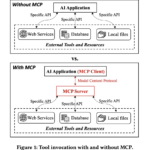
United Wholesale Mortgage (UWM) won’t be sending any more servicing deals to Mr. Cooper Group in response to Mr. Cooper’s pending $9.4 billion acquisition by archrival Rocket Mortgage. But don’t expect the end of the relationship to significantly impact the balance sheet of either lender.
As HousingWire exclusively reported on Wednesday, UWM ended its subservicing deal with Mr. Cooper and will be sending the bulk of its mortgage servicing to Cenlar FSB.
Analysts say UWM‘s servicing book totals roughly $230 billion, and the wholesale lender has multiple subservicing partners.
“Even if Mr. Cooper serviced half, which we think is very unlikely, the earnings impact on Rocket is likely to be negligible,” Bose George, an analyst for Keefe Bruyette Woods, wrote in a note to investors on Thursday.
George estimated that total subservicing revenues for Mr. Cooper are about $25 million, or roughly half a cent of earnings per share.
UWM CEO Mat Ishbia further incentivized mortgage brokers by giving them 100 basis points to refinance any loan in Mr. Cooper’s servicing portfolio, a new initiative he called “RefiShield100.”
“I’ll lose money just for fun,” he said. “I want you guys to take advantage and grow.”
Cost of switching from Mr. Cooper
Although UWM’s move to cancel its contract with Mr. Cooper was widely expected, it’s unclear how other lenders that have servicing contracts with Mr. Cooper will respond to the $9.4 billion deal.
Of Mr. Cooper’s $1.6 trillion servicing book as of Dec. 31, 2024, 53% of it was subservicing performed on behalf of other lenders. Roughly 47% of the portfolio contained owned mortgage servicing rights (MSRs) by the Dallas-based company.
“If all of the subservicing clients negotiated their servicing agreements efficiently, they would have protections for instances like this,” Jennifer McGuinness, CEO of Pivot Financial, said of the Rocket deal. “Most of the time, the standard lender is not going to really care, unless they view Rocket as a direct competitor. So if they are a direct competitor, then they would want to transition their servicing.”
McGuinness said that if a company decides to transition its servicing away from Mr. Cooper and Rocket, it’s in their best interest to have negotiated these agreements to contain termination allowances that do not require cause.
“If they have those allowances, then they just decide to terminate those agreements and start to move their servicing to a new servicer,” she said.
“Right now, I’ll tell you, depending upon how good the negotiator is for the agreement, if the servicer agrees to those provisions, usually there will be a minimum time period that they would need to service the loans before they would not have the client have to pay them a fee to break up with them.”
There is a cost associated with such a change. For a lender like UWM or another large firm, it could be worth it. But if the subservicing clients are small, the math might not add up, she said.
“If you negotiated the agreement sufficiently, it really shouldn’t cost you all that much,” McGuinness said. “But you have to also remember, if you’ve had a very longstanding relationship with a servicer, your fees may be cheaper than when you’re entering into a new servicing agreement.
“There are servicers that are willing to meet or beat your current servicing for size, meaning cost servicing, to get sizable servicing. But now you’ve got this double-edged sword, and the double-edged sword is most of the largest servicers out there are owned by either a hedge fund, a public REIT or another lender. So then, who are you going to service with?”
Big opportunity awaits
Any lender whose book is subserviced by Mr. Cooper, however, will be aware of its business model. The company is known for marketing and soliciting borrowers once subservicing agreements permit it. Its 68% retention score of past clients suggests it will be able to outmuscle many lenders when mortgage rates fall.
That’s surely a big part of Rocket’s calculation in paying a 35% premium for Mr. Cooper’s stock.
Rocket Mortgage, which has an 83% retention rate and roughly $593 billion in servicing, will be moving its servicing off ICE Mortgage Technology‘s MSP platform and onto Sagent‘s. (Mr. Cooper owns a 20% stake in Sagent).
In public statements and in its investor presentation, Rocket said it expects to bring even greater efficiency to customer retention when the two operations are integrated. They’ll be combining call centers and advanced AI technology. On the servicing side, Mr. Cooper uses Agent IQ, an AI platform used by 1,400 employees who make 400,000 calls a month.
The companies expect a 15 basis-point “uplift to Mr. Cooper’s recapture rate applied to in-the-money serviced loans.” (Mr. Cooper’s overall retention score is 50%, according to the investor presentation.)
Rocket did not specify how much of Mr. Cooper’s subservicing it will retain, but instead shared that “Mr. Cooper has built a high-performing servicing platform, including its award-winning subservicing business for several preeminent players in the industry. After the acquisition closes, Rocket plans to invest in the entire servicing platform, including subservicing, and is committed to maintaining the highest level of servicing excellence to further enhance these relationships with a focus on what is most important for each individual partner.”
“Also, it’s important to note that some subservicing clients choose a non-solicitation (or private-label) option from their subservicer, and Rocket intends to honor that arrangement,” the company added.
The size of the coming refinance opportunity is enormous. Rocket and Mr. Cooper have in-house sales forces they can direct, as well as a network of mortgage brokers. According to filings with the Securities and Exchange Commission (SEC), the companies combine to have $266 billion in servicing with coupon rates of 6% or higher.
“If you look at where we’ve invested the most, where our AI tools are making the biggest impact, it is in the servicing platform,” Mr. Cooper CEO Jay Bray told HousingWire shortly after the deal was announced. “We onboarded the Flagstar acquisition, $300 billion-plus, and we didn’t add any team members because of the scale capacity and, candidly, because of the investments we’ve made in tech.
“And so it’s a perfect marriage because you have a remarkable origination platform, and then we have the servicing piece of that.”







